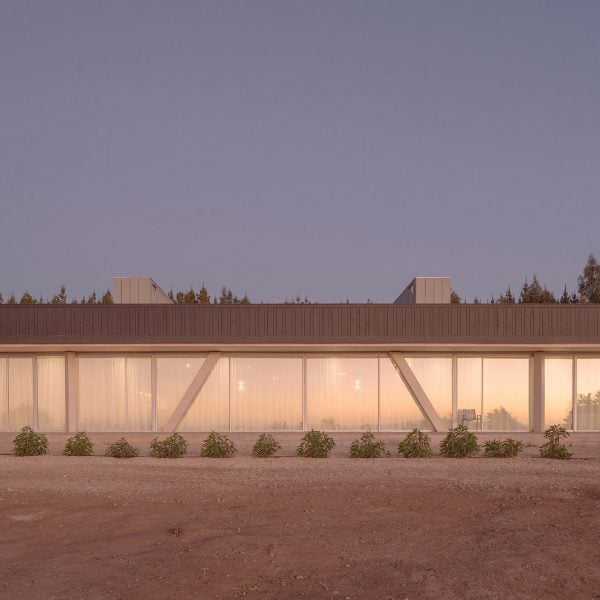Swiss architecture studio Emergentes Architectures Sàrl designed a linear beach house with angled concrete columns and wood cladding on the coast of Chile.
Completed in 2024, the 220-square metre (2,370-square foot) Dreal House is located on a gently sloping, 0.25 acre lot in Playa Hermosa.
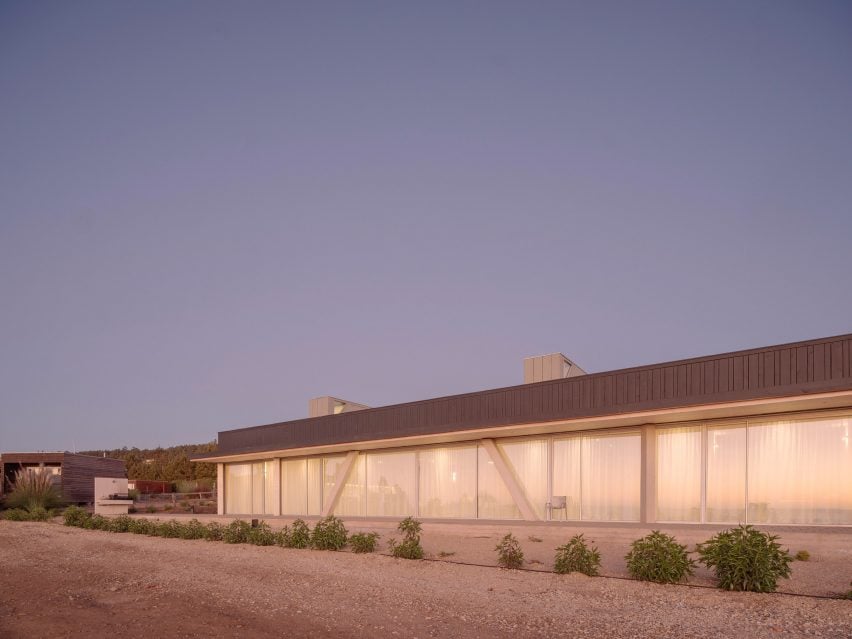
Emergentes Architectures Sàrl, based in Lausanne, Switzerland, designed the trapezoidal house to shelter from its neighbours on three sides and be entirely open to the Pacific Ocean on the other.
The load-bearing structure, with its vertical square columns rotated 45 degrees and diagonal reinforced concrete pillars, “is the house’s identifying expression and at the same time the one that organizes it spatially,” the team told Dezeen.
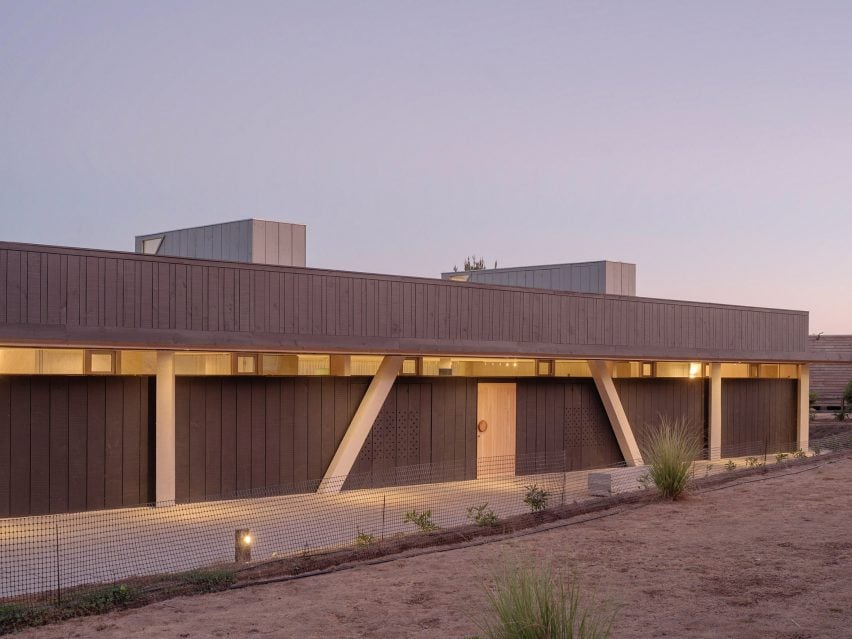
The exterior columns and four central braces support a reinforced concrete slab that serves as the roof and the upper terrace, while leaving the main level open and flexible.
The sea-facing facade is composed of floor-to-ceiling sliding glass doors in thin white frames.
In contrast, the eastern facade is a dense barrier to the neighbours with dark wooden boards closing most of the wall, save a linear clerestory window that runs the length of the house and a light wood door set into the centre of the plan.
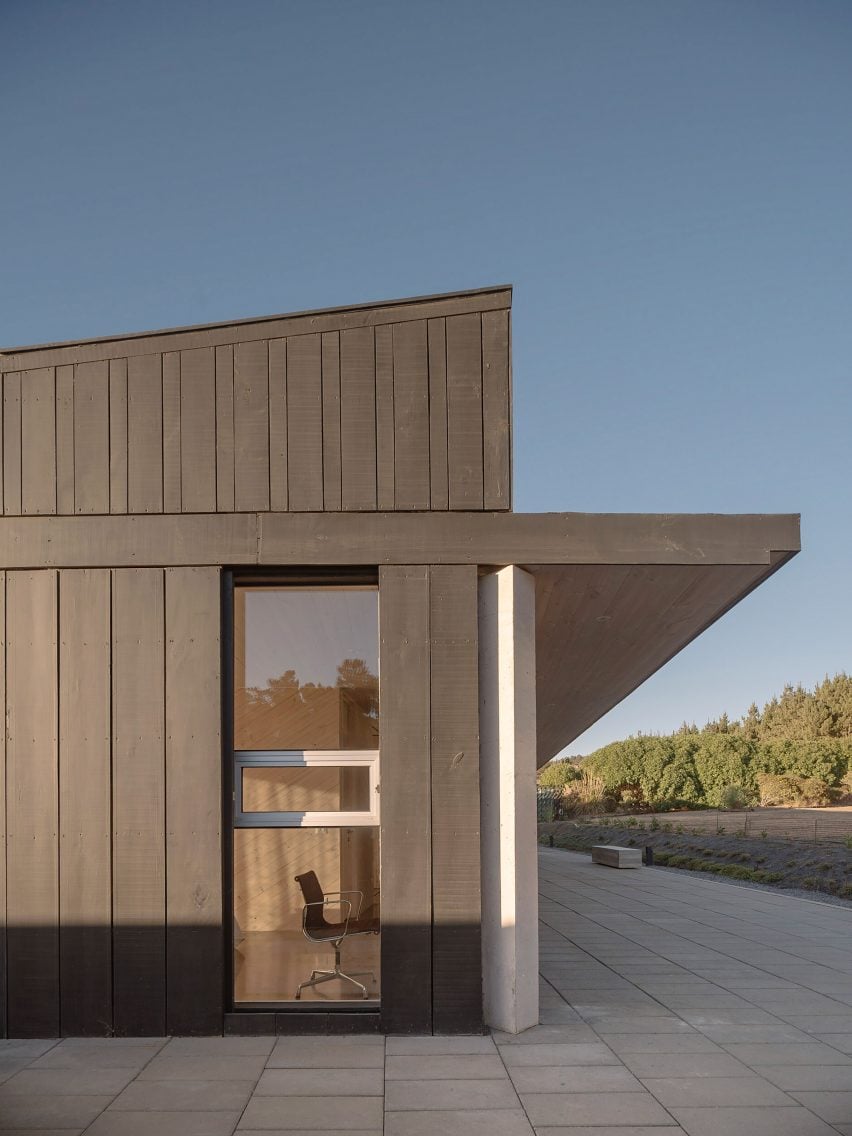
A charcoal grey wooden parapet runs down the long facades forming an apron around the terrace that turns out to an awning along both sides. The locally sourced wood was selected after “considering the climatic inclemencies of the area.”
Meanwhile, the house’s shorter sides “present a composition of ‘blind facades,’ in order to protect themselves from the winds and rains of the area.”
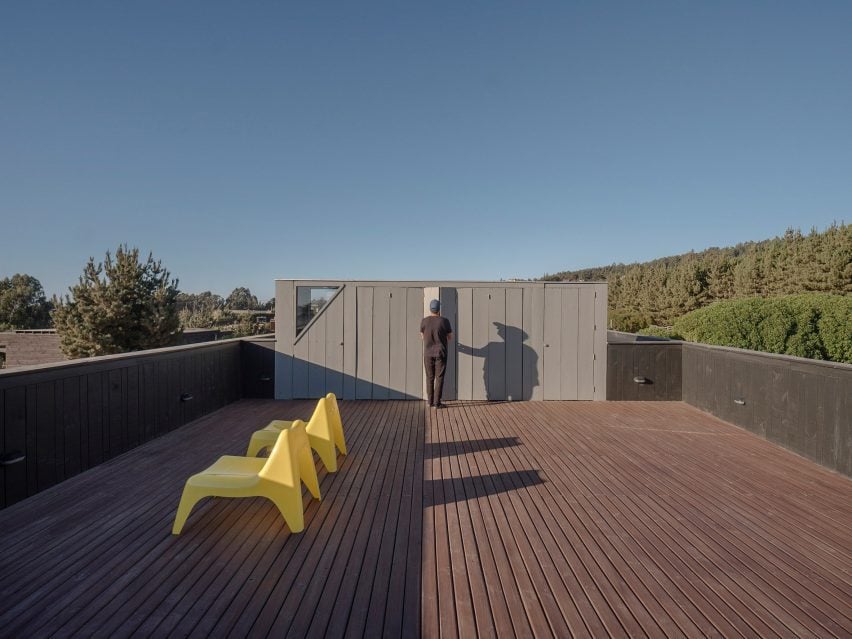
They are clad in dark wooden boards in multiple dimensions, but each block out a narrow window, and are cut with a butterfly profile in the parapet.
Inside, the spaces form a series of trapezoids that accommodate the slated eastern facade, which is thickened to accommodate storage down the length of the plan, and are oriented toward the ocean-facing glazed wall.
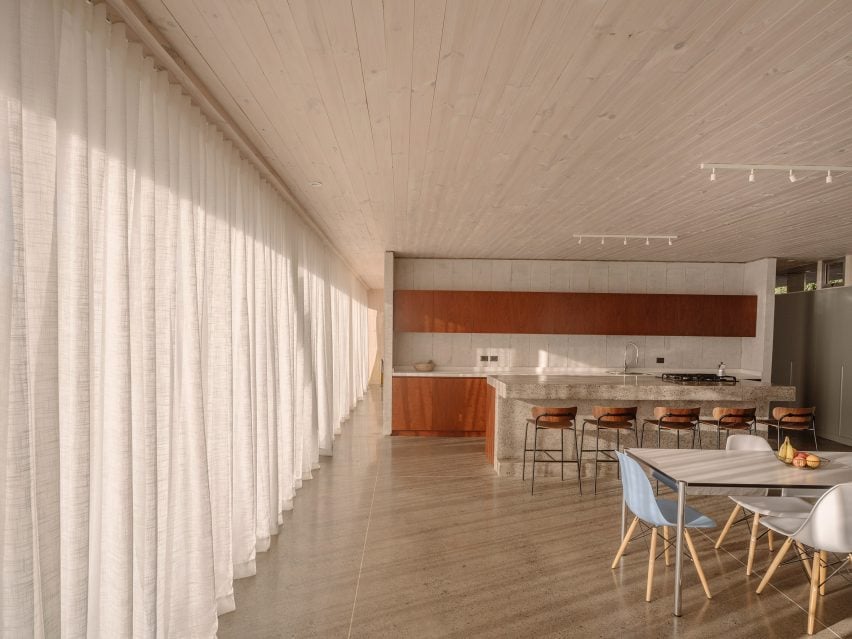
A pair of bedrooms is located at one end of the plan with a third at the other end, while the shared kitchen, dining, and living areas were placed at the centre.
“The sliding doors and movable panels allow us to configure the space according to the needs and activities, creating flexible and modular spaces, allowing simultaneous activities within the house, but with their own independence,” the team said.
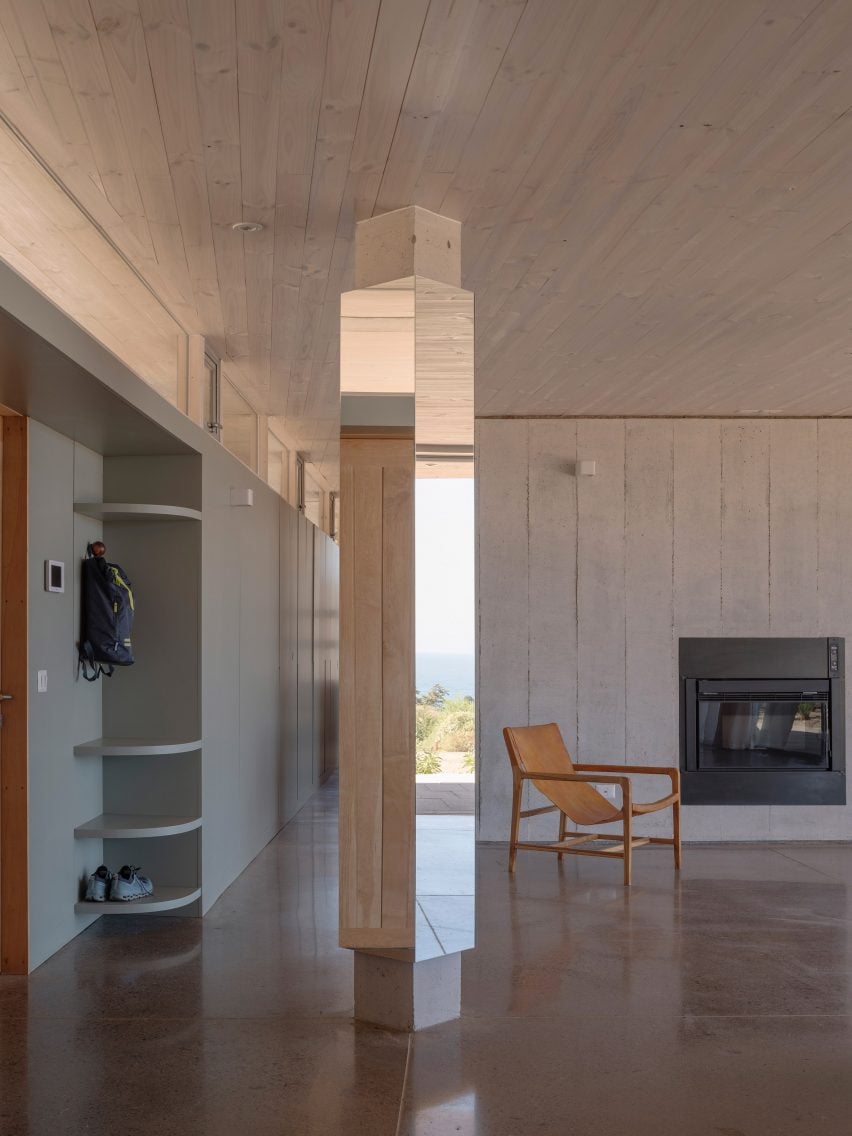
The interior features a polished concrete floor for durability and easy maintenance, light wood walls with boards oriented diagonally, and pale grey matte cabinetry with washable surfaces.
A single diamond-shaped column in the centre of the plan was wrapped in mirrors.
A narrow, white-washed staircase provides access to an upper terrace with views of the sea and a protected place for meals and relaxing.
The home’s compact volume and materials control solar radiation, reduce thermal bridging and promote natural ventilation and lighting.
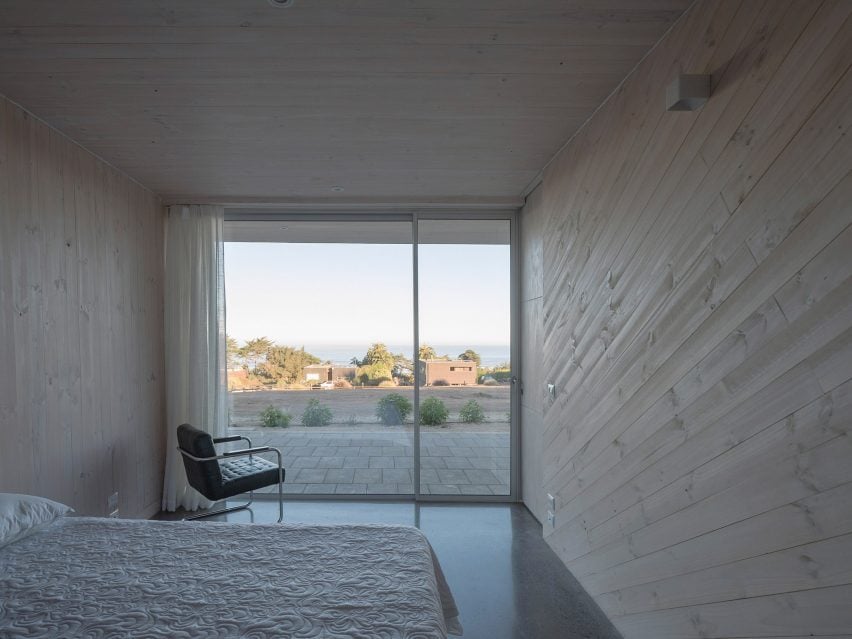
“On the outside, in the same way as on the inside, a new floor is built with a continuous path, which projects from the street and then encircles the entire house,” the team said.
Meanwhile, biomass heating, photovoltaic panels, low-consumption lighting and a water recovery system contribute to the house’s Swiss MINERGIE certification.
Other recently completed houses along the Chilean coast include a wooden truss house balanced on a cliffside by WMR Arquitectos and a blocky black wood house with a cargo net that serves as the second floor by Stanaćev Granados.
The photography is by Marcos Zegers.
Project credits:
Architecture: Emergentes Architectures Sàrl
Energy certification: Claudio Riquelme, Architecte EPF – REG A – MINERGIE expert
Drawings: Emergentes Architectures Sàrl
Interior and lighting design: Emergentes Architectures Sàrl
Structural engineer: Tomas Yañez
Construction: Laarq Arquitectos

